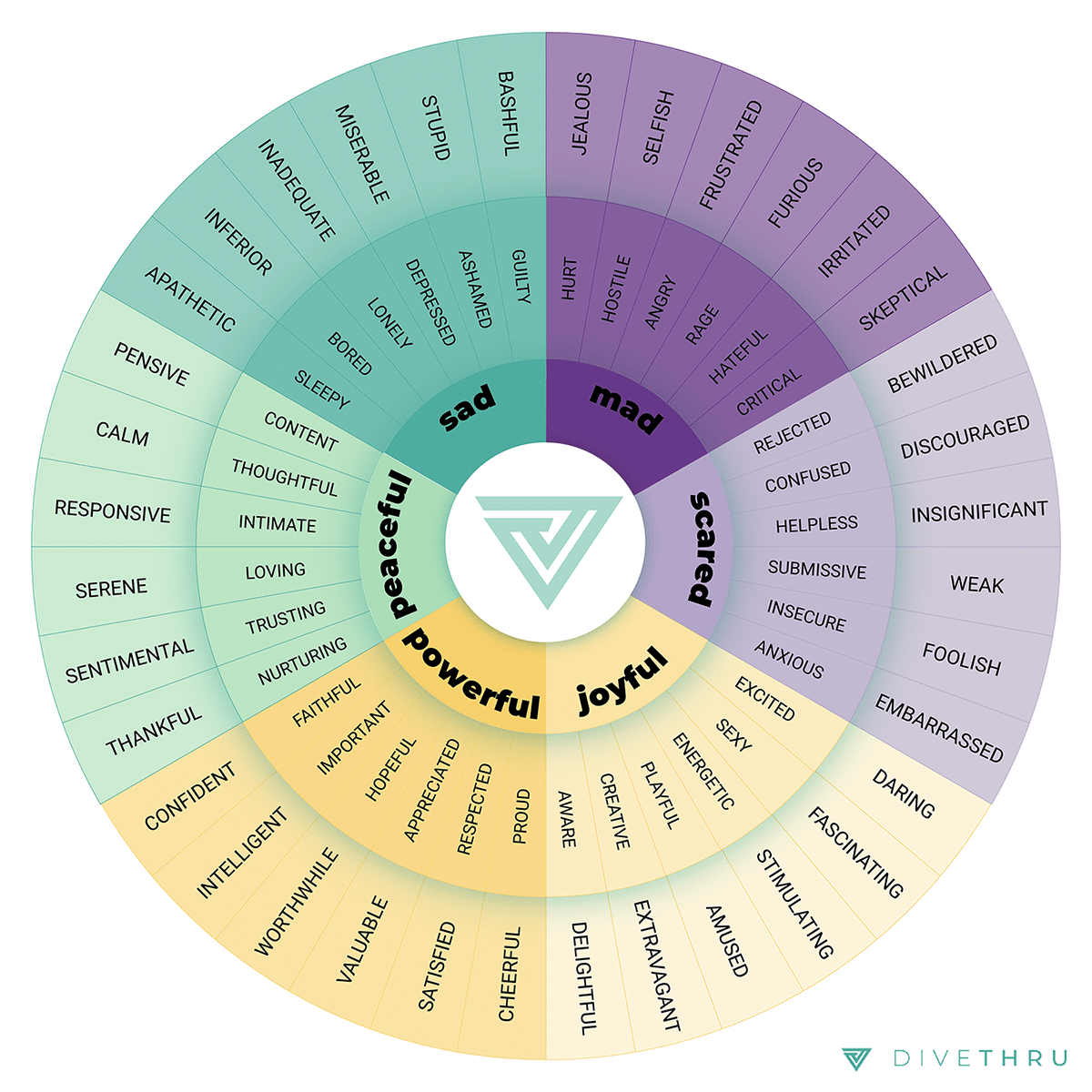When we’re feeling hostile, we just don’t want to talk to people, be around them, or even have them near us. That’s totally fine and completely normal. We can’t be a glorious welcome basket of a person all the time! Sometimes we’re put into situations where our social battery is at 0% and our politeness has gone out the window!
Maybe you’ve been burned one too many times by one person and do NOT have any more time, or fucks, left to give. You feel jaded and mad for a number of reasons, and to be honest, we don’t blame you! Sometimes your shitty experiences pile up one after the other and it’s hard to not to feel like you want to protect yourself by keeping others at arm’s length.
It can feel like you have a protective layer up around you, and that layer just happens to be one made of a lot of angry emotions. It’s ok! We all feel this way from time to time, so don’t be too hard on yourself. We’re here to help you try and understand what’s going on in your mind just a little bit more! We’ll be the guide to help you process this feeling of hostility.
A Deeper Look at Hostility
Hostility is often described as being stubborn, hot-headed, and angry. It can also be seen as having a bit of an attitude too (does that sound like something your parents ever said to you? It’s sounding horrifically familiar to us!), but sometimes this “attitude” is totally warranted! It’s often associated with anger, but it is also accompanied by feelings of skepticism, hurt, and mistrust. This cynicism might be because you believe that other people have selfish motivations, and that they WILL work to hurt you in order to get what they want. We’ve all met people like this, so we get it! You absolutely shouldn’t welcome them into your life with open arms. Other times, hostility can run a bit deeper than just these feelings. It can potentially be caused by deep seeded anger issues, PTSD, mental and physical trauma, or substance abuse. Heavy stuff, right?
Hostility can also present in a number of ways too. It’s kind of a spectrum of explosiveness, you know? Sometimes being hostile can simply mean being cold and aloof towards someone, and other times it can mean blatantly shouting at someone to stay the fuck awayyyy. It’s basically a full body feeling of ill will and being ready to fight! Like any small thing can tip you over the edge at any moment. You might not want to be giving off this vibe of hostility, but it can radiate outward no matter how hard you try to keep it contained.
How Hostility Shows Up Mentally
Our emotions can run rampant in our minds! They can run around and around, without ever really giving us an opportunity to process them before they get to be too much. We can get overwhelmed, angry, frustrated, scared, and allow these feelings to fester in our minds. This turns into a nasty little spiral that we can’t seem to stop:
- Anger
- Cyniscim
- Frustration
- Being hot-headed
- Impatience
- Stubbornness
Feelings of hostility can also cause a lot of stress and anxiety in your mind! You might have angry outbursts, think or behave irrationally, and have a hard time communicating your feelings calmly with other people. If you notice that controlling your anger has become difficult and it starts to affect your daily life, it’s a good idea to speak with a mental health professional in therapy to learn better stress management.
How Hostility Shows Up Physically
Hostility doesn’t always just live as a form of anger in our minds. Sometimes, we just get to a point where we have to let it out! If someone or something is pushing our buttons too much, we might feel like we need a physical release of our emotions, and those can show up in some not-so-nice ways:
- Violence
- Shouting
- Unkind words
- Isolating from others
- Fatigue
Since our minds treat hostility similarly to stress and anxiety, it signals our bodies to do the same! You might also experience an elevated heart rate, higher blood pressure, muscle tension, chest pain, headaches and hot flashes. Anger puts you through A LOT.
5 Ways to Cope with Hostility
Ok, enough of us talking about how much you don’t want to talk to people! Let’s get to the real reason why you’re reading this — how to cope with this feeling:
1. Journal
Why do you feel this way? What is making you feel this way? Write it all down and get it out of your head and into your journal. Maybe seeing your emotions down on the paper of your journal will help you process this sense of hostility and anger.
2. Reach Out to a Support Person
Sometimes you just need to fucking VENT! Get your emotions out of your body and off your chest. It can be a lot to take on just by yourself so call up your bestie, your mom, your dog walker – WHOEVER and just talk it out!
3. Practice Deep Breathing
Our body can get overwhelmed with the emotions that we feel sometimes. We run through scenarios in our head to prepare ourselves for certain situations, but what we end up doing is having our body actually experience the situations that we’re imagining. Our bodies don’t really know the difference between emotions and real-life situations, so you’re forcing yourself to experience the worst case scenario over and over again. Calm your nervous system down by practicing deep breathing techniques and sloooooow dowwwwn your racing mind.
4. Run Your Hands Under Water, Splash Your Face, Hold an Ice Cube
Ok, hear us out! This is actually a really helpful technique. Why? Well, when you shock your body by introducing a different sensation like coldness, it actually takes your mind away from your emotions, and forces you to focus on the cold that you’re feeling in that moment.
5. Find a Positive Distraction
If you’re feeling overwhelmed by this emotion and want to try and just get it out of your head, find something positive to take your mind off of it. It seems simple, but it totally works! Watch your favourite reality TV show, knit, listen to a podcast, cook, anything that brings you joy!
We hope that this helped. We know that working through hostile feelings can be soooo hard to overcome, especially if you’ve been hurt before. But we believe in you! Feel allllllllllllll the feelings and be kind to yourself. We know you’re doing the best with what you’ve got!












